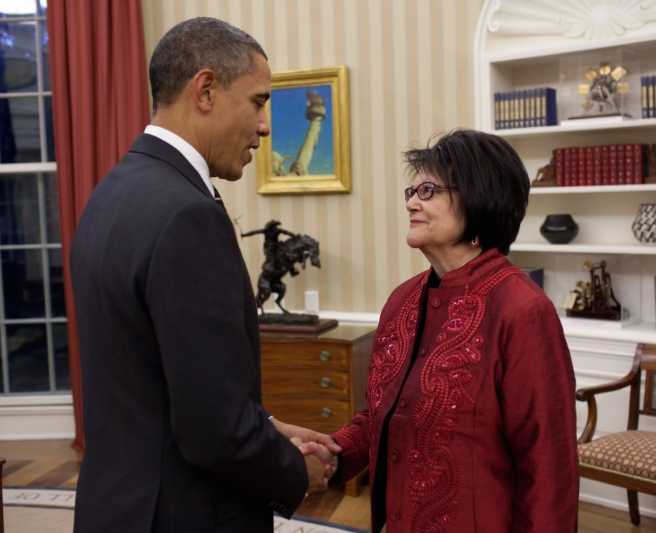
- Details
- By Kaili Berg
More than $38 million in unclaimed funds are still available through the historic Cobell settlement, but the window to apply is closing fast.
Heirs of Native individuals who held Individual Indian Money (IIM) accounts that were mismanaged by the federal government must act before the end of June to file a claim and receive what they are owed.
The Cobell Settlement, finalized in 2010, awarded $3.4 billion to over 500,000 Native American account holders after decades of mismanagement by the U.S. Department of the Interior.
While the majority of claims were paid out, more than 17,000 individuals who were either original beneficiaries or their rightful heirs have yet to claim their portion.
Any heir of an original beneficiary included in the lawsuit is eligible to file. The process is simple and does not require hiring an attorney. Heirs can call the toll-free number (1-800-961-6109) or visit www.CobellSettlement.com to get started.
“This is a very easy process,” Melinda Janko said in a recent public service announcement. “All they need to do is reach out and complete a basic verification. No lawyer is needed.”
The settlement stems from the tireless efforts of the late Elouise Cobell (Blackfeet Nation), who spent years demanding accountability from the federal government on behalf of Native landowners.
Advocates say taking action to claim these funds not only brings financial justice, but also honors the legacy of Cobell’s fight.
“If you just leave it and don’t do anything about it, it does an injustice to the fight that Ms. Cobell put up for your family,” Ervin Chavez said in a statement. “All beneficiaries are due the funds that they are owed for justice.”
The deadline to file is June 30, 2025. Heirs are urged to check with family members and encourage anyone who might be eligible to act now before time runs out.
More Stories Like This
Native News Weekly (August 25, 2024): D.C. BriefsNavajo Nation Gaming Enterprise Marks Problem Gambling Awareness Month With $3.4M in Support
Cheyenne River Youth Project to Celebrate Women’s Strength at Barbie-Themed Passion for Fashion on March 14
Celebrating Native American Women
Native Bidaské: The Illusion of Freedom and the Myth of America 250, Leonard Peltier Speaks Out
Help us defend tribal sovereignty.
At Native News Online, our mission is rooted in telling the stories that strengthen sovereignty and uplift Indigenous voices — not just at year’s end, but every single day.
Because of your generosity last year, we were able to keep our reporters on the ground in tribal communities, at national gatherings and in the halls of Congress — covering the issues that matter most to Indian Country: sovereignty, culture, education, health and economic opportunity.
That support sustained us through a tough year in 2025. Now, as we look to the year ahead, we need your help right now to ensure warrior journalism remains strong — reporting that defends tribal sovereignty, amplifies Native truth, and holds power accountable.
 The stakes couldn't be higher. Your support keeps Native voices heard, Native stories told and Native sovereignty defended.
The stakes couldn't be higher. Your support keeps Native voices heard, Native stories told and Native sovereignty defended.
Stand with Warrior Journalism today.
Levi Rickert (Potawatomi), Editor & Publisher

